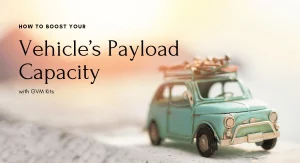Maximizing Your Budget: Tips for Buying a Used Car from a Second-Hand Car Selling Website
By TIMEOFINFO
May 2, 2023
Update on : May 2, 2023

Buying a used car can be cost-effective and environmentally friendly, but it requires research and careful consideration. Second-hand private car sales by owner listed on car-selling websites offer a wide range of vehicles, making it easy for potential buyers to find their ideal car at a competitive price. However, navigating the sea of available options can take time and effort. This article will explore tips and strategies for maximizing your budget when purchasing a used car online.
Set a Budget and Stick to It
- Establish your budget: Determining your maximum spending limit before diving into the search. Consider additional costs such as taxes, registration, insurance, and potential repairs. Remember that exceeding your budget may lead to financial stress in the long run.
- Filter your options: Use the platform’s filtering tools to narrow your choices based on your budget. Don’t be tempted to browse cars outside your price range, which may lead to impulse buying or disappointment.
- Be prepared to negotiate: Although the listed price on a second-hand car-selling website might seem final, there’s always room for negotiation. Keep your budget in mind, and be prepared to walk away if the seller isn’t willing to meet your terms.
Conduct Thorough Research
- Study the market: Spend time researching the market value of your desired car model, considering factors like age, mileage, and overall condition. This will help you establish a baseline for what you should expect to pay.
- Read reviews: Look for reviews from other buyers who have purchased the same make and model. This will give you insight into common issues or areas of concern, helping you make a more informed decision.
- Check the vehicle history report: Always request a vehicle history report from the seller, or use a third-party service to obtain one yourself. This will provide crucial information such as previous accidents, title problems, and ownership history.
Prioritize Quality and Reliability
- Opt for certified pre-owned cars: Choosing a certified pre-owned (CPO) car can offer peace of mind, as they have undergone thorough inspections and come with a manufacturer-backed warranty. While CPO cars may be slightly more expensive, the benefits can outweigh the additional cost.
- Look for well-maintained vehicles: A well-maintained car is likely to be more reliable and has a longer lifespan. Ask the seller for service records and pay close attention to details such as oil changes, tire rotations, and other routine maintenance.
- Focus on reliability ratings: Some car models have a reputation for long-term reliability. Check consumer reports and reliability ratings to identify models that are less likely to require expensive repairs down the road.
Inspect and Test Drive
- Arrange an inspection: Don’t rely solely on pictures and descriptions provided by the seller. Instead, arrange an in-person or virtual car inspection to assess its condition more accurately. If you need more time to do this, consider hiring a professional mechanic to conduct a pre-purchase inspection.
- Test drive the car: A test drive can reveal potential issues that might not be apparent during a visual inspection. Pay attention to the car’s performance, handling, and overall comfort during the test drive, and don’t be afraid to ask the seller questions.
Finalize the Deal
- Review the paperwork: Before finalizing the purchase of a private car sales by owner, carefully review all paperwork, including the bill of sale, title, and registration. Ensure the information is accurate and consistent with the seller’s disclosure.
- Arrange payment and transportation: Agree on a payment method that suits both parties and confirm any additional fees or taxes. Once the payment is settled, determine the most convenient and secure way to transport the car to its new home. Research reputable car shipping services if you cannot pick up the vehicle in person.
- Transfer ownership: To complete the transaction, ensure the title is properly transferred to your name. This process varies by location, so familiarize yourself with local regulations and requirements. Remember to update your insurance policy to cover the newly purchased car.
- Plan for post-purchase expenses: Set aside funds for any immediate repairs or maintenance tasks that must be addressed. Also, remember that used cars may require more frequent service visits than new vehicles, so budget accordingly.
Conclusion
Buying a used car from a second-hand car-selling website can be a smart and budget-friendly decision, but it requires diligence and patience. You can make the most of your budget and find a reliable vehicle that meets your needs with the help of an online car dealer. Moreover, with the tips mentioned above, you’ll be better equipped to navigate the online used car market and make a confident purchase decision.
Related Articles: Maximizing Your Budget: Tips for Buying a Used Car from a Second-Hand Car Selling Website















